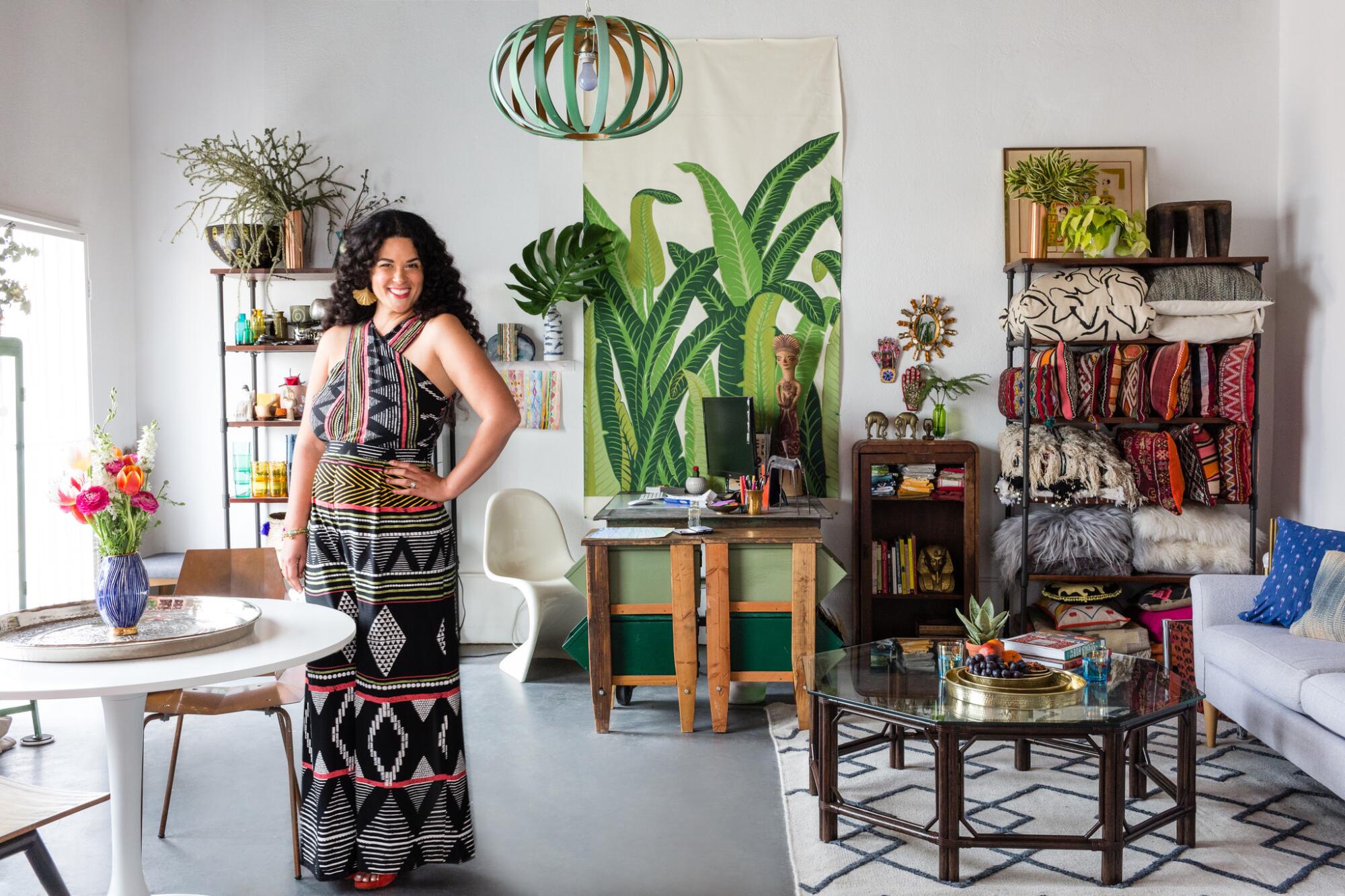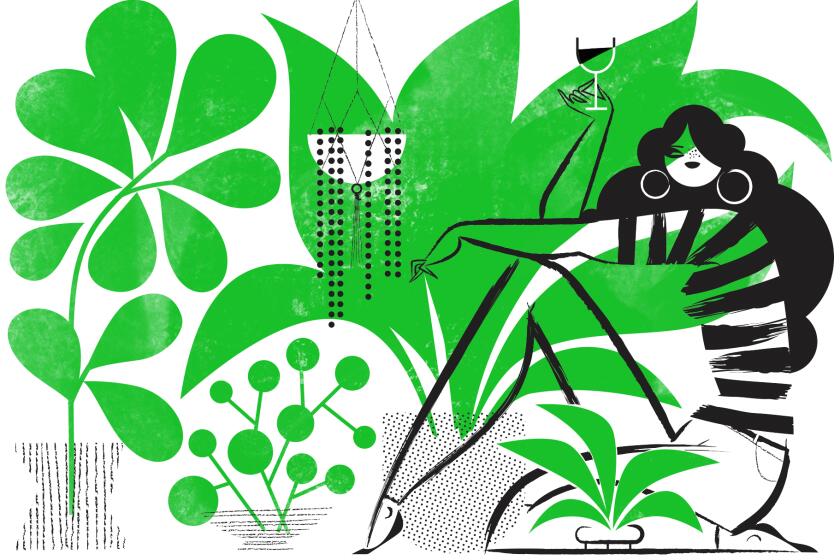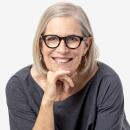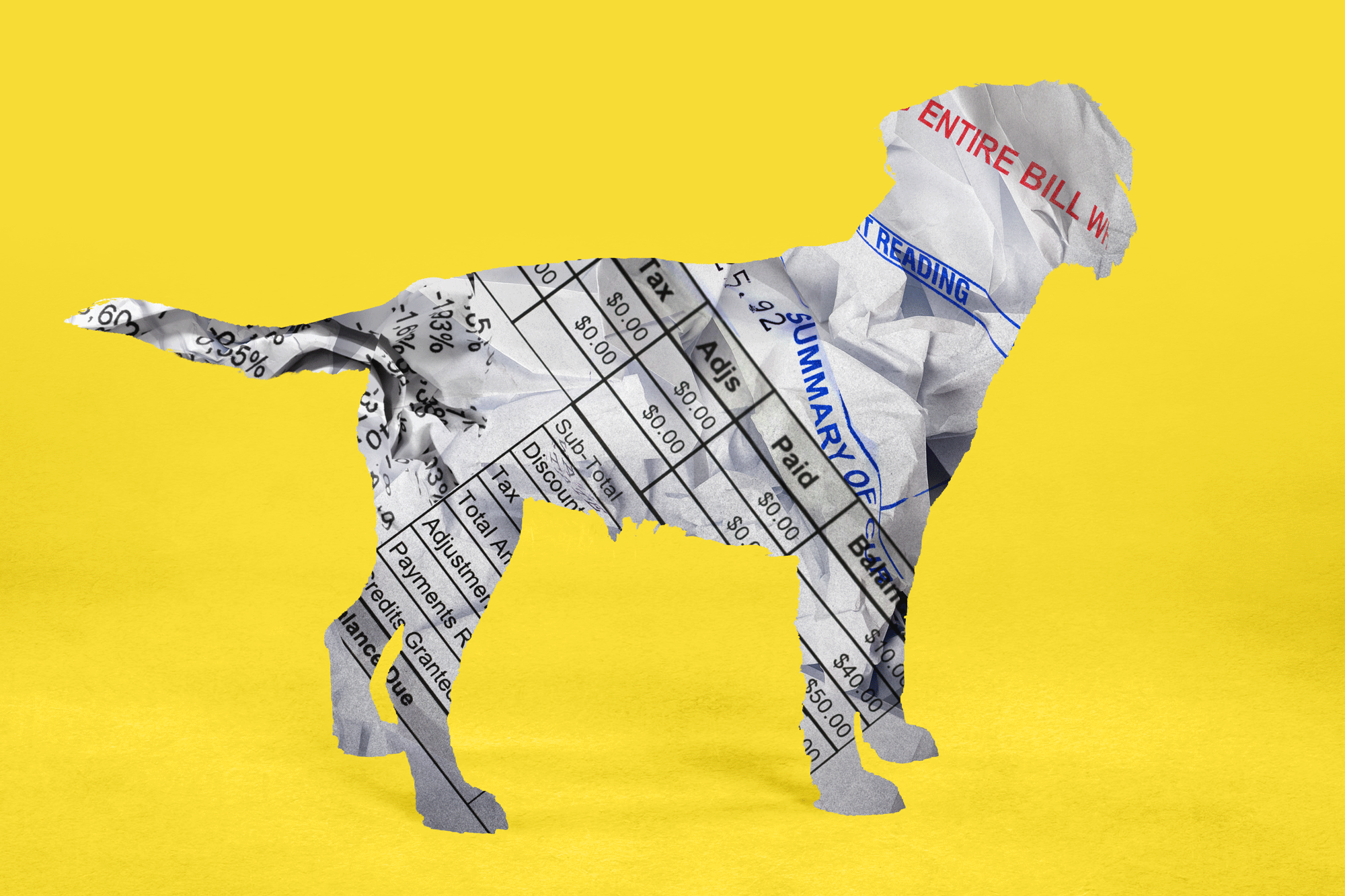
Growing up Black and Jewish, Jungalow designer Justina Blakeney says she struggled to fit in â even in a progressive city like Berkeley.
âWithin my childhood home, our âmixed-nessâ was all I knew,â she writes in her new book, âJungalow: Decorate Wildâ (Abrams, $40). âIt was comfortable, fun â beautiful even. But outside in the world, things were different. People tried to categorize me and wanted me to categorize myself. I struggled with my ethnic identity, as we all do, feeling like I didnât totally fit in or belong anywhere. Such mixing is essential to who I am, and I am not alone. People and practices mix all the time. Everything and everyone is mixed. And I believe that we are better off because of it.â
Blakeneyâs âmixed-nessâ ultimately defined her. It also informs her beautiful new coffee-table book, which came out this week. Part autobiography, part travelogue, part DIY and interior design inspiration, âJungalow: Decorate Wildâ takes readers along for the ride as Blakeney learns to appreciate her âin-betweenâ status through her travels through India, Greece and Morocco and at home in Los Angeles.
As an interior designer, Blakeney shares many âhow-toâ design tips, of course â bringing the outdoors in through vertical garden systems, mixing patterns, ways to add color to interiors â but her latest book, she says, is not just about âhowâ but âwhy.â
âI wanted the book to feel like a beautiful experience and journey based on how I see the world,â Blakeney said this week. âWhen it comes to âthe how, I wanted to help people find whatever their journey is. In order to do that, you have to dig and find your âwhysâ and what that means. It might be color. It might be a pattern. It might be texture. Or it might be plants.â
Blakeney recently spoke with The Times about her new book and shared an exclusive excerpt of the DIY âplantastic decoupage wallpaperâ project she made with her daughter Ida, 7, using vintage National Geographic magazines.
Designer and lifestyle influencer Justina Blakeney doesnât have a therapist and thatâs OK; she can talk to her tillandsia.
You share a lot about yourself on social media, but you go deep in the book, donât you?
As soon as I wrapped my brain around doing a new Jungalow book, I wanted it to be personal. The journey has been so closely linked to me and my heritage and my travels and how I was raised in Berkeley. Once I realized the concept for the book, I knew I was going to have to share more of myself. In the last two books, I explored the bohemian aesthetic in other peopleâs homes, which were more outward-facing. I wanted to figure out more of âthe whysâ as well as âthe hows.â
What do you mean by âthe whysâ?
Being open to observing the world around you and taking note of the different things that catch your eye and create an emotional response. Iâm trying to uncover âthe whyâ for you â the magic in the mix. I tried to show different people and places and invite people to do the same. Different cultures, and the places you have been, can be inspiring. You can reflect that feeling back at home.
But itâs about more than just traveling to exotic places, isnât it?
I first learned that lesson when I was at UCLA and I returned from my junior year abroad. I was always traveling to some spectacular place when I was living in Italy. So when I got back to L.A., I thought, âIâm going to treat L.A. like I treated Florence and explore this city and get to know it.â I ended up doing that with a girlfriend and we turned it into our senior thesis project. That was my first foray into appreciating hyperlocal places as a major inspiration designation. It can be something as quirky as your local grocery store, the L.A. River, a cafe, the library, the leaves changing color. There is so much beauty in the small moments we experience.
Did the past year influence your book, and your emphasis on different cultures?
I handed all of the copy in before June of last year. I submitted it in March when the world closed down. It was always my intent to include my magic, and so much of that stems from the way I decorate. People always say, âYou are so free to mix things upâ and ask me if what they are doing is OK. I think people have a barrier and are not sure about whatâs allowed. Or they donât think about it and do whatever they want without any attention to cultural practices. With all the call-out culture we have now, people wonder, âAm I allowed to use this African basket?â Iâm not an expert, but I do think the bottom line is that we need to respect each other. I think if you do things from a position of respect and humility and learning, itâs not wrong.
I wanted to be able to shed the fear of tapping into beauty from other cultures. Thatâs who I am. I was raised with so many different cultures, different countries, languages, and it created who I am. We need to increase intercultural understanding and communication â art and design can be a bridge. I wanted to lay out that bridge and share it. People were upset when I hung Native American portraits in my parentsâ home, even though my dad is Black and Native American and feels seen by those portraits. I donât want to discount anyoneâs feelings. Itâs important to have a discussion and call people in, rather than call people out and make them feel defensive. Itâs like the âwhy.â
Even though you are from the Bay Area, the way you write about California architecture and lifestyle shows a deep affinity for Los Angeles.
There are so many different ways to address the concept of culture and the cultures you feel like you belong to. As someone who is multiracial, a core part of my identity is being a Californian. No one can take that away from me. Itâs a big part of who I am. It is also related to my identity of being a bohemian, an artist and a free spirit. How I feel about myself is wrapped up in California. I was raised to march to the beat of my own drum.
So much of my aesthetic and design knowledge is rooted in Los Angeles. Everything from Spanish-style architecture to the indoor-outdoor lifestyle to gardens. Thereâs so much about Los Angeles that speaks to my soul when it comes to design: The sun. The plants and palm trees and greenery. The quality of light is so special. So much about the way that I design is how to bring that indoors. When I was young, I came to L.A. several times a year to visit my family. I would light up when the plane landed and I could see the palm trees on the street. I have always loved Los Angeles and the California lifestyle.
So for you, decorating is about finding satisfaction in your own self-expression.
Thatâs what itâs all about. You donât need to chase trends. You need to do what makes you happy.
More to Read
Sign up for The Wild
Weâll help you find the best places to hike, bike and run, as well as the perfect silent spots for meditation and yoga.
You may occasionally receive promotional content from the Los Angeles Times.












